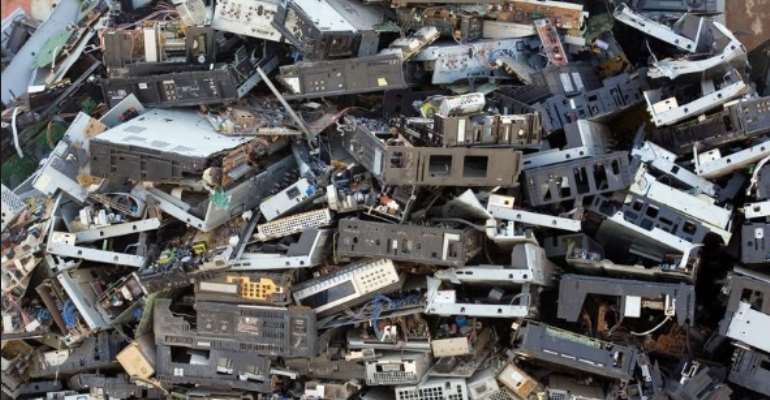E-Waste And Its Impacts On Environment And Human Health---The African Situation

It was estimated (2013) that 40 million metric tons of electronic waste (e-waste) were globally produced each year and about 13 percent of that weight is recycled mostly in developing countries. According to the United Nations Environment Programme (UNEP) the European Union alone produced 9 million of these waste- discarded televisions, computers, cellphones and other electronics.
Unfortunately developing countries, in particular those with rapidly growing economies, are the ones handling more than 50 percent of this waste by providing informal recycling markets. These markets operate by shredding, burning and dismantling the products in “backyards.” The consequences of these methods are the production of emissions inimical to human health and the environment.
It is believed that 70 percent of the e-waste handled by India is from other nations, and UNEP alerts that between 2007 and 2020 domestic television e-waste will double, computer e-waste will increase five times and cellphone 18 times. The dangers associated with informal recycling practices are amongst others primary and secondary exposure to toxic metals such as lead. Combustion from burning e-waste creates fine particulate matter which is linked to pulmonary and cardiovascular disease.
Beside the above stated dangers, researchers, such as Brett Robinson- a professor of soil and physical science at Lincoln University in New Zealand, warn that wind patterns disperse toxic particles release by open-air burning across others areas other than the place where the action is taken. In this way, toxic chemicals from e-waste enter the “soil-crop-food pathway,” one of the most significant routes for heavy metals’ exposure to humans. It is important to note that these chemicals are not biodegradable and they remain in the environment for long periods of time.
The Basel Convention on the control of Transboundary Movement of Hazardous Waste and their Disposal bans the exchange of hazardous waste, including e-waste, between developed and developing countries. E-waste being an important global environmental and health issue should be a global concern hence necessitating concerted efforts to thwart its negative consequences.
Unfortunately Africa and in particular West Africa is becoming a dumping site for e-waste from various parts of the World, according to European Union and U.N studies. African countries are unable individually to control the movement of this hazardous waste and to find any adequate solution to their disposal because they do not have recycling facilities. This situation results in the careless disposal of electronic products often in unmonitored dumpsites or landfills.
Therefore African countries should have the political will to elaborate common policy responses capable of controlling the importation of this waste and the proper methods of its disposal.
As a matter of urgency African countries should have ICT policies to support the establishment of e-waste plants. There should be conscious efforts to create awareness amongst the peoples and prevent e-waste from ending up on the streets.
Let us all endeavor to ensure clean environment!
Awaah Fred
(Secretary General)
www.aasuonline.org ;
[email protected]/[email protected] ;
+233(0)243101626
